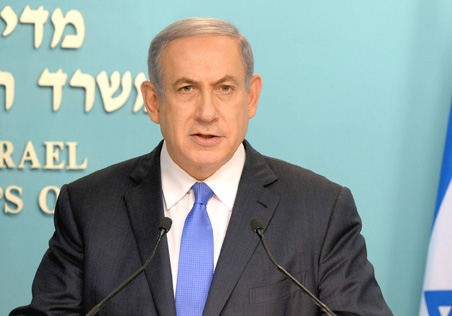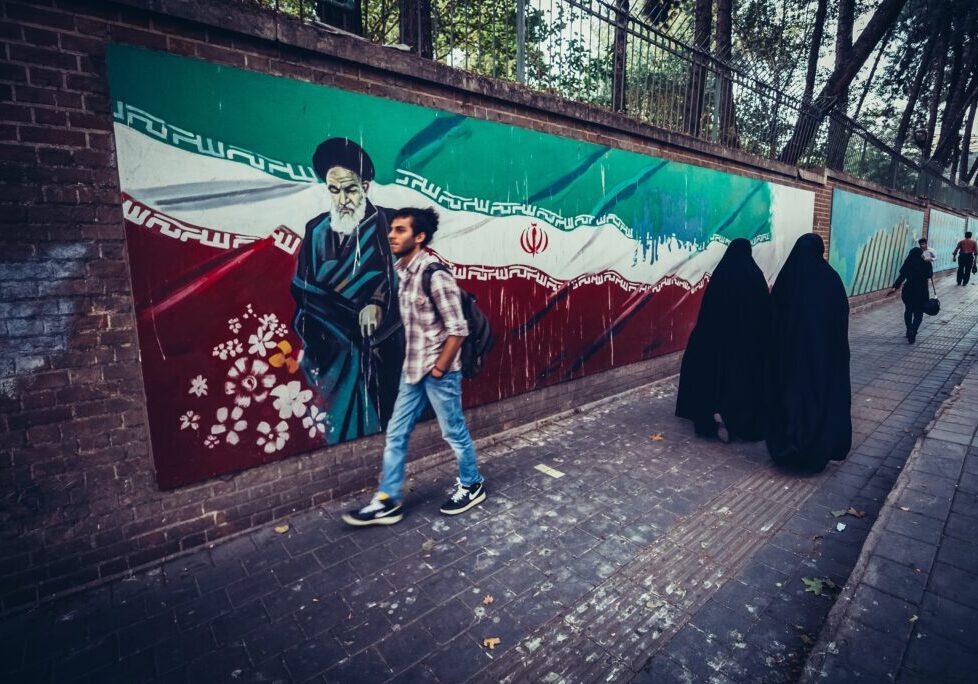Australia/Israel Review
Israel and the Iran Deal
Jul 29, 2015 | Amotz Asa-El

Amotz Asa-El
By sheer coincidence, the deal to constrain Iran’s nuclear program was signed during the three weeks in which Jews commemorate what began with the breaching of ancient Jerusalem’s walls and ended with the torching of its Temple.
Though opinions in Israel vary concerning Iran’s immediate threat to the Jewish state, the deal signed in Vienna in July left many Israelis feeling that diplomatic walls have been breached abroad. Yet political walls may soon be mended at home.
The deal struck between the Islamic Republic and the five Security Council members, as well as Germany and the European Union, slows the pace and delays the maturation of Iran’s nuclear program, but fails to undo it.
According to the deal, Iran will transfer abroad, mostly to Russia, 98% of its low-enriched uranium, cutting its enriched uranium to less than 300 kilograms; Iran will avoid producing uranium purer than 3.67% for 15 years; Iran will promise to put into storage two-thirds of the centrifuges it has with which uranium can be enriched to fuel a bomb; and Iran will allow inspection and monitoring of its nuclear activities for the next 25 years.
If executed to the letter, these concessions will keep Iran during the upcoming decade around one year away from a bomb’s completion, about four times longer than its current distance from such a goal.
Iran’s motivation in accepting the deal is obvious.
Once it has completed the cutbacks that the deal stipulates, many of the sanctions that have crippled Iran’s economy will be lifted. That should happen by early next year. This would mean Iranian petroleum’s immediate return to the energy markets, the release of more than US$100 billion in assets currently frozen abroad, and the lifting of bans on business with Iran’s financial institutions.
The deal does not impact all the sanctions imposed on Iran along the years, some of which go back decades, most notably those on energy and financial deals with American firms. However, from the Iranian viewpoint, these are unimportant. The US, now a net-exporter of oil due to shale production, is no longer a potential client for Iranian oil. Other business with Americans will be feasible through European intermediaries.
The Western powers’ rationale is also clear. As they see it, a commercially focused Iran will be kinder and gentler.
“We know from experience that countries that have multiple engagements face constraints and moderate their behaviour,” British Foreign Secretary Philip Hammond told Israeli TV’s Channel 2 News.
Israeli leaders, both within and outside the government, disagree. Calling the agreement “a bad deal of historic proportions,” Prime Minister Binyamin Netanyahu told NPR Radio that the mechanisms that give Iran 24 days before it faces sudden inspections in response to alleged violations are a licence to cheat. Moreover, even if it doesn’t cheat, Iran’s nuclear program has effectively been legitimised with Teheran licensed to enrich uranium as it pleases and therefore build a bomb as early as twelve years hence, he said.
President Barack Obama and Secretary of State John Kerry said Netanyahu did not offer an alternative, an allegation he dismissed, saying he did propose an alternative, namely a deal that would include demanding a change of course in Iran’s regional conduct and some genuine roll-back of Iran’s nuclear infrastructure, accompanied by a threat to intensify sanctions.
With the mullahs meddling in conflicts throughout the Middle East, from Sudan and Lebanon to Syria and Iraq, and with Iran’s local allies lobbing missiles from northern Yemen into Saudi Arabia, Netanyahu expected the US to tie a nuclear deal to such affronts to US interests. Washington, however, thinks such an approach would automatically disband the fragile coalition that struck the deal with Iran, as China and Russia would seldom share America’s interests, and in many cases would in fact oppose them.
Indeed, the deal with Iran impacts many countries in many ways.
Chief among these impatient business partners is China, for which Iran, once the commercial curiosity at the other end of the Silk Road, now constitutes the Asian giant’s strategic energy supplier. Perennially thirsting for oil and gas, Beijing is expected to sign long-term deals with Teheran the morning sanctions are lifted.
Russia’s situation is more complex, as it has no need for Iranian goods and will in fact be competing with Iran in the energy markets, where the return of the world’s fourth largest oil reserves will further depress prices. However, Russia sees in Iran a potential arms buyer, a role that will be enabled as soon as UN sanctions are lifted.
Iran’s military hardware is believed to be largely antiquated and in bad need of replacement. China, a major supplier during the Iran-Iraq War that ended in 1988, has since backtracked from that role, while the US, the major supplier during the Shah’s era, is not expected to return to selling arms to Iran anytime soon.
The natural supplier is Russia, whose eagerness for such a relationship was laid bare earlier this year, following the signing of the framework agreement between Iran and the powers, when Moscow hastened to announce it felt free to execute a previously signed deal to supply Teheran with an advanced S-300 anti-aircraft missile system. With an estimated annual US$13 billion in arms sales, Russia’s arms industry is eager to supply a client as needy as the Iranian armed forces.
Iran’s economic rehabilitation will be even more lucrative for European firms that are eager to inundate the Islamic Republic with new production lines for automobiles, clothing, footwear and food. And across the border, Turkish firms are eager to join public works projects throughout Iran, which sorely needs new highways, railways, airports, shopping malls and power stations.
India, like China, thirsts for nearby Iran’s oil and gas and, unlike China, the Subcontinent also supplies the Islamic Republic with most of its rice.
Business, in short, is likely to boom in a newly mercantile Iran – to the delight of an Islamist regime out to generate prosperity without moderating its behaviour either internally or internationally.
That scenario, to be sure, is Israel’s gravest concern.
An Iran that is confident, affluent, and legitimate and at the same time unreconstructed will prolong and multiply what has long been a supreme strategic challenge for the Jewish state.
That is why the focus, from Jerusalem’s viewpoint, now shifts to the US Congress, which has 60 days beginning July 20 to review the deal and approve or reject it.
Netanyahu’s stance in this regard was a foregone conclusion. Yet less expectedly he has been joined by Opposition Leader Isaac Herzog of the centre-left Zionist Union and by the centrist Yair Lapid, the former finance minister who heads the Yesh Atid faction.
Both men attacked the deal in harsh terms, and Herzog also volunteered to travel to Congress in order to persuade wavering Democrats to oppose the deal. Between them, Netanyahu, Herzog and Lapid represent on the Iranian issue almost every Jewish Israeli. The sense of alarm is also shared by former president Shimon Peres who reportedly listed the deal’s faults as he saw them during a phone conversation with National Security Adviser Susan Rice, who had called to enlist Peres’ support for Obama’s compensatory arms package.
This effort to appease Israel with new military hardware – perhaps because of the awareness of the broad consensus in Israel – was spearheaded by Defence Secretary Ashton Carter, who was dispatched to Jerusalem by the White House.
Speaking on Israeli Radio ahead of Carter’s arrival, Israeli Minister of Strategic Affairs Gilead Erdan said he was unaware of an approaching compensation offer, but even if one arrives, Israel should politely turn it down, as it would neither justify the deal nor solve the problems it creates.
Meanwhile, back in Teheran, Supreme Leader Ali Khamenei praised in a televised public address the masses who over the years shouted “Death to America” and “Death to Israel”, cries that accompanied also that speech itself, delivered less than a week after the signing of the deal in Vienna.
Khamenei’s statements were just what Netanyahu needed. Speaking to the press before the weekly cabinet meeting, he said that “if anyone thought the far-reaching concessions to Iran would bring change in its policies – they received a crushing reply in Iranian leader Khamenei’s aggressive and abrasive speech.” The Iranians, said Netanyahu, were not even trying to hide their intention to use the billions the deal will release in order to arm terrorists.
Israeli leaders’ agreement concerning the deal’s substance created expectations of a broadening of the current narrow coalition government. Such a development is not expected until September or October at the earliest. Labor leaders for now reject the idea, while President Reuven Rivlin has said he will not initiate a meeting between Netanyahu and Herzog before the two decide to meet of their own volition.
For now, the politicians have little room to manoeuvre as Netanyahu’s narrow coalition sweats to pass the budget by its 31 December deadline. Herzog et al. have no intention of making this painstaking process any less frustrating than it promises to be. However, once the budget is passed, chances are probably better than even that Labor will join the government.
Yet even if Labor does not join the government, opposition to the deal with Iran is so firm in Israel that it is radiating to the Jewish Diaspora.
Originally undecided and also challenged by some Jewish Democrats, led by the J-Street group, the main pro-Israeli lobby in Washington, AIPAC, decided soon after the deal’s signing to launch an all-out effort to oppose it.
A statement on its website that detailed the deal’s flaws as AIPAC sees them was followed by a massive effort to persuade American lawmakers, through their constituents, to oppose the deal.
Technically, the challenge is daunting. While the Republican-controlled Congress can be expected to reject the deal, overriding the presidential veto that such a vote will surely trigger will demand a 66% majority that the deal’s opponents for now lack. Still, that is where the effort inspired by Binyamin Netanyahu and joined by the Israeli opposition is now headed.
While this rearguard battle is led by Israel and its supporters, Iran itself prepares to rejoin the global economy, while the US hopes to keep Israel at bay by arming it and at the same time trying to tame the Iranian tiger it has chosen to ride.
It is within this geopolitical Bermuda Triangle, and its contradictory angles, that history will be shaped in upcoming months.
Tags: Iran






